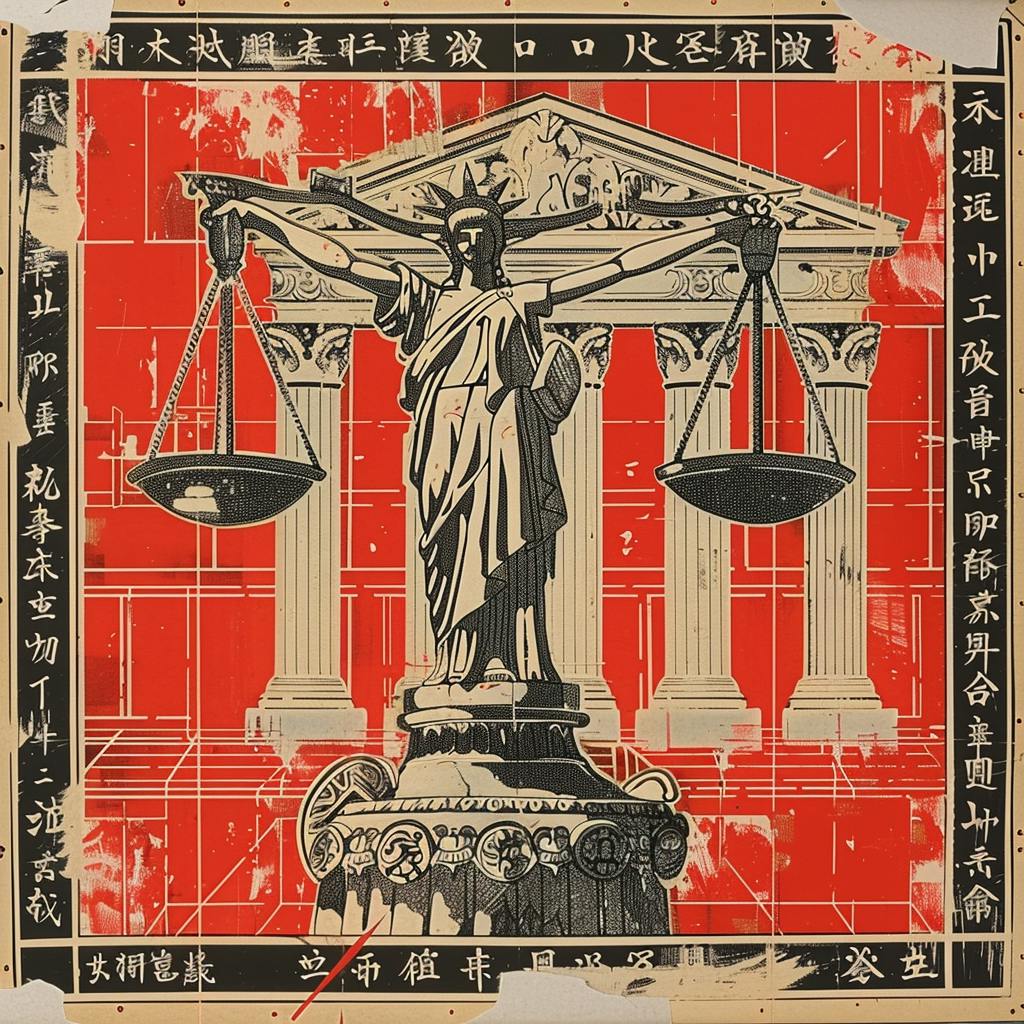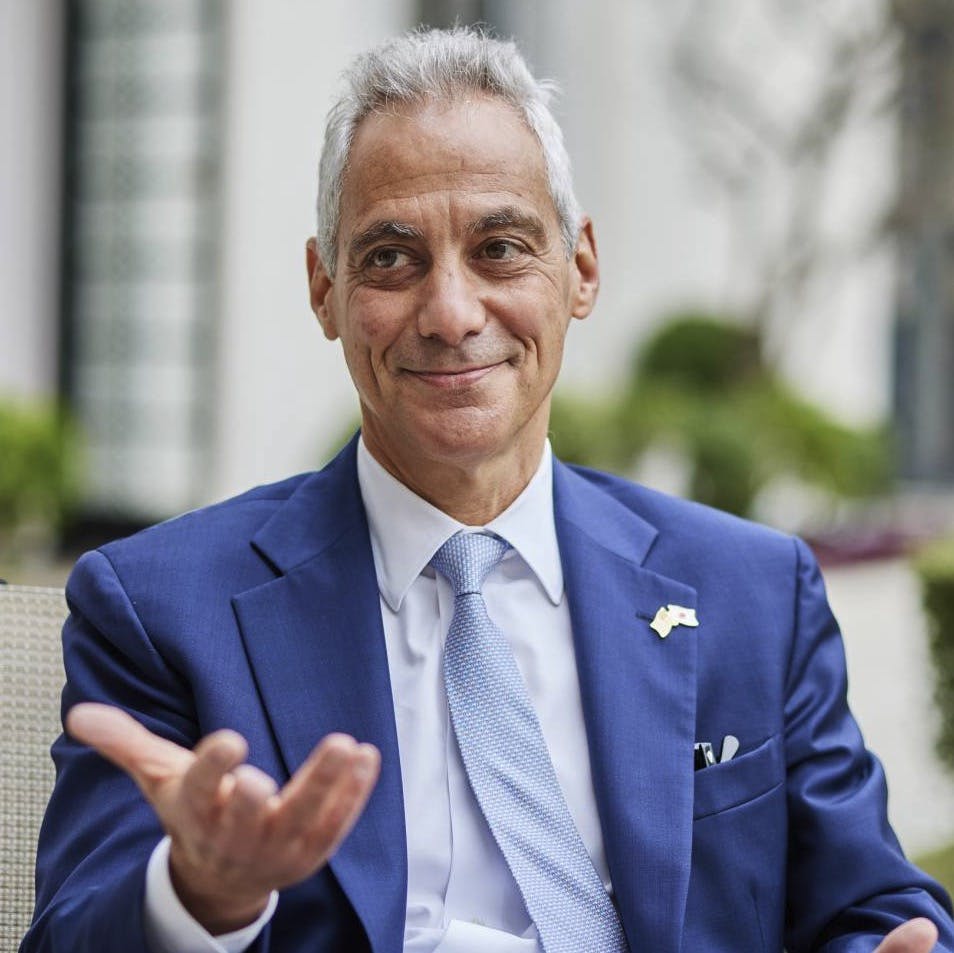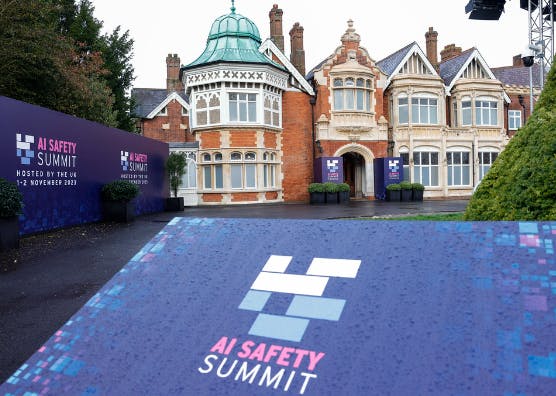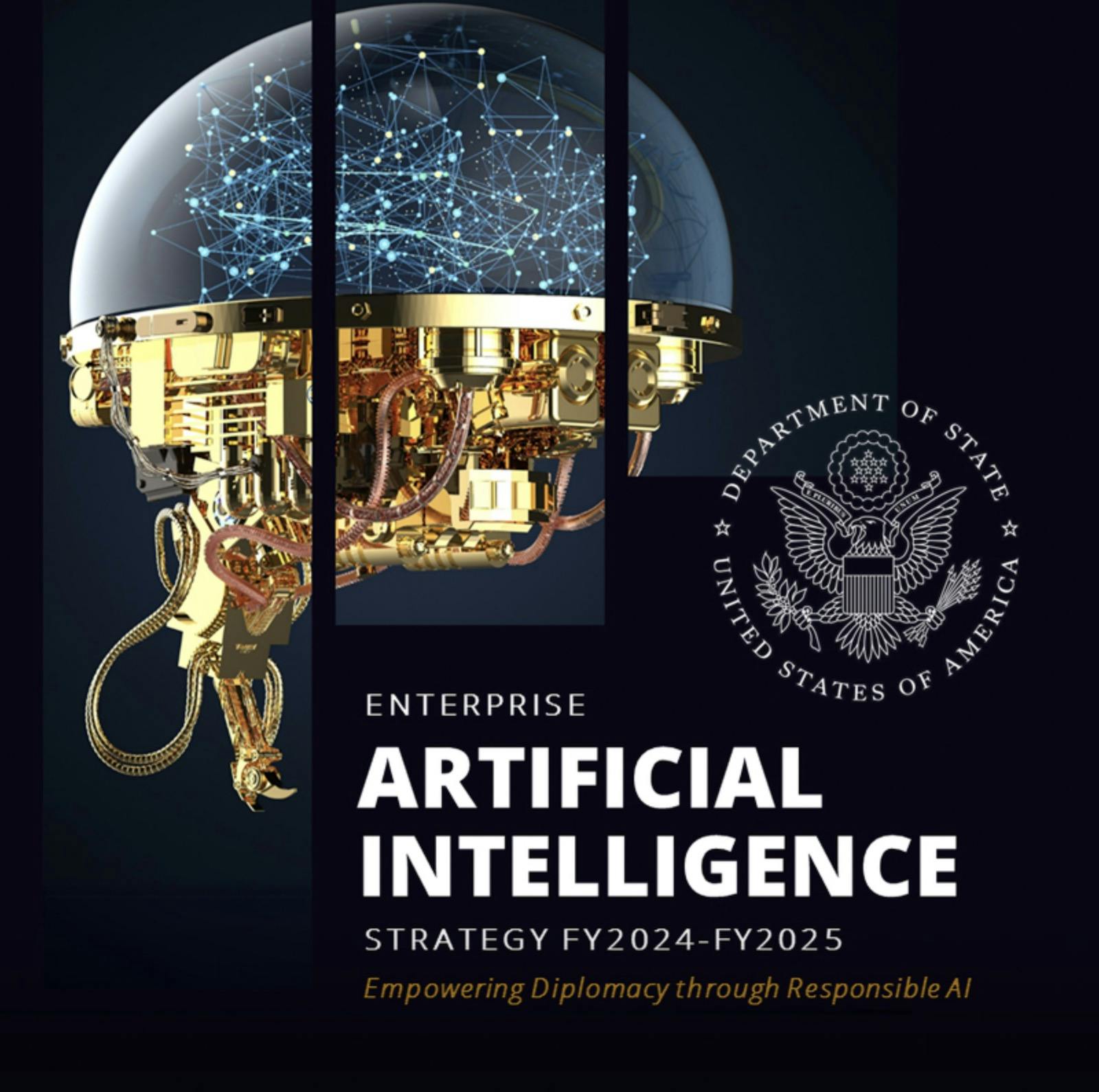Discover ChinaTalk
ChinaTalk

ChinaTalk
Author: Jordan Schneider
Subscribed: 1,082Played: 52,284Subscribe
Share
© Jordan Schneider
Description
Conversations exploring China, technology, and US-China relations. Guests include a wide range of analysts, policymakers, and academics. Hosted by Jordan Schneider.
Check out the newsletter at https://www.chinatalk.media/
343 Episodes
Reverse
One does not simply invade Taiwan — but George Marshall once thought long and hard about it. In 1944, in the middle of the island-hopping campaign, American war planners set their sights on Japanese-controlled Formosa.
What did the American invasion plan look like? Why did Marshall decide to go another route? What lessons do this and other amphibious invasions hold for Taiwan’s current force posture?
To discuss, ChinaTalk interviewed US Army Field Artillery Lieutenant Colonel J. Kevin McKittrick, currently at the Air War College in Alabama and a veteran of multiple deployments in Iraq and Afghanistan.
Co-hosting today is our resident Taiwan consultant Nicholas Welch.
We discuss:
The US military’s aborted plan to invade Taiwan during WWII;
Why bigger is better when it comes to amphibious assaults;
What the US got right and the CCP gets wrong about civil-military relations;
Taiwan’s defense concept, and the opportunities presented by “operational pause”;
The awful, unending relevance of traditional artillery in modern war;
And why the US doesn’t need its own “rocket force” … yet.
Outtro music: 被動 (Passive) by 伍佰 Wu Bai&China Blue. Youtube Link.
Photo: White House, July 29, 1942. Left to right: Admiral Ernest King, Admiral William Leahy, and General George Marshall. | Wikimedia Commons
Learn more about your ad choices. Visit megaphone.fm/adchoices
Taiwan’s government agencies are battered by 5 million cyberattacks every day. China is holding invasion drills at a replica of Taiwan’s presidential palace in Inner Mongolia. Last week, the PLA openly rehearsed an encirclement of Taiwan in so-called “punishment drills.”
What happened to deterrence in the Taiwan Strait? Can the status quo be saved?
To discuss strategies for avoiding WWIII, ChinaTalk interviewed Jared McKinney of the Air War College and Peter Harris of Colorado State University, who recently co-authored a monograph entitled, “Deterrence Gap: Avoiding War in the Taiwan Strait.”
Co-hosting today is ChinaTalk’s resident Taiwan consultant, Nicholas Welch.
We discuss…
Evidence of deterrence decay in the status quo;
The difference between constraints and restraints, and how they fit together to form a lattice of successful deterrence;
Whether symbolic solidarity with Taiwan does more harm than good;
The values and costs of strategic ambiguity;
How Taiwan can optimize its deterrence posture;
Lessons from the dance of death between Iran and Israel;
Objective factors for measuring invasion risk, and whether the world should be scared about 2027;
How to analyze decision trees for fundamentally irrational decisions;
... and more!
Outtro music: MJ116, 辣台妹 (HOT CHICK) - Official music video: MJ116【辣台妹 HOT CHICK】- (youtube link)
Learn more about your ad choices. Visit megaphone.fm/adchoices
Good AI is good and bad AI is bad, but how do lawmakers tell the difference? Will AI bring the world together or balkanize the internet beyond repair? Why do governments even need cloud computing anyway?
To discuss, ChinaTalk interviewed Pablo Chavez, a fellow at CNAS and former Vice President of Google Cloud's Public Policy division, as well as the inestimable investing tycoon Kevin Xu. Xu, formerly of GitHub, is the founder of Interconnected, a bilingual newsletter on the intersections of tech, business, investing, geopolitics, and US-Asia relations.
In this interview, we discuss:
The digital sovereignty movement and the lessons we can learn from China's Great Firewall;
The value and risks of open source architecture in the future of AI governance;
Meta’s long history of open source and how Llama fits into that strategy;
The geopolitical and cultural forces driving nations to pursue their own AI strategies;
The viability of sovereign AI initiatives in the face of global tech giants.
Learn more about your ad choices. Visit megaphone.fm/adchoices
Nathan Lambert of the Interconnects substack and Allen Institute joins for a roundup where we get into:
What DC should understand about the Bay Area AI engineer psyche
What GPT4o and Google's AI Dev Day mean for the future of AI
OpenAI's model spec, and exit, voice, and loyalty in the leading labs
Outtro music: Scarlett Johansson's The Moon Song
Learn more about your ad choices. Visit megaphone.fm/adchoices
We're taking one out of the archives!
Douglas Irwin is a Dartmouth professor and the author of Clashing Over Commerce: A History of US Trade Policy. On this episode, Irwin provides an overview to the history of U.S. trade policy from the 18th century to the modern day, highlighting significant legislation as well as the formation of important intergovernmental organizations that have sprung up along the way.
Outro Music: Janis Joplin, Mercedes Benz
19:53: On the flawed logic behind the Tariff Act of 1930, and the parallels with similarly problematic thinking in the modern day: “There’s absolutely a parallel there because some Democrats in Congress said, ‘You know, we ought to really think about this carefully, and not just our domestic interest but also our export interests, and other countries might retaliate.’ And basically, the reaction of most members of Congress was, Republicans at the time, ‘No, we don’t have to worry about that. This is a domestic piece of legislation, it doesn’t really concern other countries. They’re not going to retaliate.’ And, of course, they did.”
39:40: Doug discusses the tips and tricks behind one example of “tariff engineering”: “The tariffs applied to motorcycles with piston displacements of 700cc and above. What Honda started doing is producing a 699cc version. Now the difference [between the two] is imperceptible, but just by changing that one cubic centimeter, it changed the whole tariff treatment and you avoided a 45 percent tariff and were assessed at a much, much lower rate.”
Learn more about your ad choices. Visit megaphone.fm/adchoices
Brad Setser of CFR talks Biden's new tariffs!
Earlier podcast deep dive on Chinese EV policy: ChinaTalk: Why Chinese EVs Will Take Over the World on Apple Podcasts
Earlier podcast on the deep history of US trade policy: ChinaTalk: Tarriffs, taxes, and trade: Doug Irwin on ChinaEconTalk on Apple Podcasts
Brad's paper: Power and Financial Interdependence (ifri.org)
Outtro Music: Golden Earring's Radar Love
Here's a fun playlist on the best car songs: https://open.spotify.com/playlist/6l0sSAdFwyCH1yzQX2IrKQ?si=fb3b8fdd29644631
Learn more about your ad choices. Visit megaphone.fm/adchoices
Charles Clancy is the CTO of MITRE, an American not-for-profit organization managing federally funded research and development centers (FFRDCs) supporting various US government agencies in defense, healthcare, national security, and cybersecurity fields, among others.
In this interview, we discuss:
What is MITRE and how does it support national science & technology strategy
How China threatens America’s infrastructure and university R&D
The cyber workforce gap and how AI could fill it
Finding mission-driven work for highly skilled technologists
How the ecosystem of S&T and R&D funding evolved through the 20th century to today
Outtro music: Yung Bae, Magic Yung Bae - Magic (youtube.com)
Learn more about your ad choices. Visit megaphone.fm/adchoices
TSMC is taking on Arizona. How's it going? To discuss, ChinaTalk interviewed Viola Zhou, journalist at Rest of World. She has published pieces on Foxconn's quest to make iPhones in India and most recently, a gripping feature about the cultural challenges that TSMC is facing trying to manufacture semiconductors in the USA. Throughout her story, we get a peek into a world of rigid hierarchies, American workers who are slow on the uptake, and culture clash over pornographic desktop flair.
Today’s interview discusses:
Sleuthing techniques for independent journalism;
The challenges faced by Taiwanese semiconductor engineers relocating to Arizona;
TSMC’s management style and the complaints raised by new American employees;
The similarities and differences between TSMC’s expansion to the USA and Foxconn’s expansion to India;
Whether adapting to American work culture will tank the prospects of the new Phoenix Fab.
Learn more about your ad choices. Visit megaphone.fm/adchoices
India’s elections are underway! What does the future hold for the world’s largest democracy? Will the election results impact India-China relations? What about India-US relations?
To discuss, ChinaTalk interviewed Dr. Raja Mohan, Director of the Institute of South Asian Studies at the National University of Singapore.
Co-hosting today is James Crabtree, author of The Billionaire Raj.
We get into:
What the border disputes between China and India can tell us about the political economy of the two nations;
The anti-imperial history that frames India-China relations;
Modi’s election prospects and India’s spirit of democracy;
What score Biden’s diplomatic team has earned in Southeast Asia;
Criticisms of Modi and accusations of democratic backsliding;
Opportinities for friction in the US-India relationship, including Trump tariffs, immigration, and Russia;
Whether the US is making a “bad bet” on India, and how India is prepared to involve itself during an invasion of Taiwan.
Outtro Music: Jhoome Jo Pathaan Vishal-Shekhar, Arijit Singh, Sukriti Kakar, Vishal Dadlani, Shekhar Ravjiani, Kumaar https://open.spotify.com/track/6FAYpZ4jve8vpvTwUvjK6H?si=66c7c984fd52497cs
12 Bande 12 Bande - song and lyrics by Varinder Brar | Spotify
Learn more about your ad choices. Visit megaphone.fm/adchoices
The DOJ is now charged with protecting American data from foreign adversaries. This new proposed rule they recently issued is, according to one observer, “one of the most ambitious and sweeping new initiatives in national security law over the past few years.”
To discuss, we interviewed Devin DeBacker and Lee Licata of the Department of Justice’s National Security Division.
We get into:
How adversaries plan to weaponize obscure data types — including geolocation data, DNA sequencing, and undersea cable transmissions;
How China managed to purchase genomic data on millions of Americans through healthcare investments;
Why black box data brokers keep records of who goes to casinos;
How the DOJ plans to protect your data, and whether their plans can be thwarted by gridlock in Congress.
I’m excited to introduce a partnership with Policyware to bring affordable, expert-driven policy education to my audience. Starting May 14, Samm Sacks will be teaching a deep dive into China’s Digital Governance and its Global Implications.
Samm is an old friend of mine and a Senior Fellow at Yale Law School’s Paul Tsai China Center. She is a leading expert on China’s cybersecurity legal system, the U.S.-China technology relationship, and the geopolitics of data privacy and cross-border data flows. Check out below a show I did with Samm on ChinaTalk discussing China’s digital governance.
You’ll learn over several weeks as Samm delivers live classes, with options to listen on your own time. Policyware Deep Dives are designed to be attended alongside your job, and they will help you organize with your employer for cost sharing. Check out the show we did together on data issues late last year.
Help support ChinaTalk by registering for the deep dive here and thank you to Policyware for sponsoring today’s episode.
Learn more about your ad choices. Visit megaphone.fm/adchoices
Ryan Takeshita is the Chief Global Editor at PIVOT, a new media outlet in Japan focused on the emerging startup scene.
We get into:
A stroll through recent economic history leading to today's 'boom times'
Why more people are looking to leave traditional occupations for insurgent firms
Challenges around demographics and immigration
Outtro Music:
Idol by Yaosobi https://open.spotify.com/track/1hAloWiinXLPQUJxrJReb1?si=36552bdc34cb4a73
Matsuri No Genzo by Hideo Shiraki and 3 Koto Girls https://open.spotify.com/track/6eTteH1zyZeQKZ2Mu7VC5d?si=230b3d1739d5417e
Learn more about your ad choices. Visit megaphone.fm/adchoices
To learn about Japan’s new economic national security policy, export controls, chip policy, lessons from history, and even space policy, we interviewed Kazuto Suzuki.
Suzuki-san is a professor at the University of Tokyo. He serves as an advisor to Japan’s Ministry of the Economy, Trade, and Industry (METI) as well as advising Japan’s space program. He served on the UN Security Council's Iran Sanctions Panel, and he also recently established the Institute of Geoeconomics at the International House of Japan.
We get into…
What Japan’s new economic national security law does, and what it means for global semiconductor supply chains;
The state of multilateral export controls;
Nippon steel, the US election, and cooperation between East Asian democracies;
Historical examples of economic coercion, from the Qing Dynasty to FDR vs imperial Japan to the Senkaku islands;
Japan’s goals for space commercialization;
… and more!
Co-hosting today is Arrian Ebrahimi, student at Yenching academy and author of the Chip Capitols Substack.
Outtro Music: Every Breath You Take/Theme from Peter Gunn as featured on the Sopranos The Sopranos - Every Breath You Take (youtube.com)
Cover photo: Toyohara Kuniteru III | Illustration of the Imperial Diet House of Commons with a Listing of all Members | Japan | Meiji period (1868–1912) | The Metropolitan Museum of Art (metmuseum.org)
Learn more about your ad choices. Visit megaphone.fm/adchoices
Just minutes after the Taiwan earthquake yesterday, Dylan Patel of SemiAnalysis, Doug O'Laughlin of Fabricated Knowledge, Jon of Asianometry and yours truly had a brief hang where we got into:
Intel's process progress and rocky financial road ahead
Reflections out of GTC
Jensen's galaxy brain
Photo of the woman who saved Intel, Dr. Ann Kelleher, General Manager of Foundry Technology Development.
Outtro music: YELLOW黃宣 & 9m88 - 怪天氣 Strange Weather https://www.youtube.com/watch?v=1n_i0JupwRA
Learn more about your ad choices. Visit megaphone.fm/adchoices
Straight from Tokyo, Japan: an exclusive with Amb. Rahm Emanuel.
Before his current posting as US ambassador to Japan, Rahm served as a senior advisor to Bill Clinton, multiple terms in the US House of Representatives, Obama’s first chief of staff, and the mayor of Chicago.
If nothing else, you can count on his gloves-off, no-holds-barred approach to politics — and he’s been no different when it comes to China. Notwithstanding reports that even officials in Biden’s NSC have told him to stop “taunting” China, Rahm has been consistently, uniquely willing to say out loud what virtually every other high-ranking US official doesn’t.
Of course, the ambassador — or, as his desk placard during his chief-of-staff days read, “Undersecretary for Go Fuck Yourself” — may take issue with that framing. His comments aren’t “critical,” Rahm says, but “truthful.”
This interview covers a ton of ground. On China:
How the Biden administration is closing the chapter on “hub and spokes,” what tomorrow’s “latticework” architecture will look like, and what Asia-Pacific alliances might look like under a second Trump administration;
The future of Japan-Korea, and a peek behind the curtain on how the historic Camp David summit materialized;
Rahm’s “3 Cs” for China — calm, conflict, charm — and how US foreign-policy leaders should reckon the mutual inconsistencies among those three;
And roads not taken by Xi: why Rahm thinks China’s entrepreneurial culture has taken a nosedive, and what China’s government today is most scared of.
And on politics and life:
Why “diplomacy” and “politics” are the same thing — and why that’s a good thing;
Whether the State Department suffers from a personality deficit, and what makes for a good ambassador;
How to heal America’s body politic — post-Trump, post-Recession, post-GWOT;
Why Rahm thinks “quality time” with kids is “BS,” and thoughts on raising kids as a time-crunched politician;
And what Rahm thinks the biggest emerging threat to the world is.
I really enjoyed my trip to Japan, and I’d love a financial excuse to continue recording shows on the country. If you work at JETRO, METI, The Japan Foundation, Mitsubishi, Rakuten, etc. and are interested in seeing more deep coverage of Japan and US-China-Japan relations on this podcast, do reach out!
Outtro music: Tadao Hayashi Japanese Harp Trio's 1977 take on I Could Have Danced All Night Tadao Hayashi Harp Trio – The Impossible Dream 1977 (youtube.com)
Also from 1977, Tokai by Kaeko Onuki Tokai (youtube.com)
Learn more about your ad choices. Visit megaphone.fm/adchoices
Biotech. What is it? Why should you care? Does biotech really matter for national security? What are China’s biotech ambitions?
To find out, ChinaTalk interviewed Jason Kelly, the Chair and Vice Chair of the National Security Commission on Emerging Biotechnology. Jason is the Co-Founder and CEO of Ginkgo Bioworks, a publicly traded firm that provides a horizontal platform for cell programming. Michelle Rozo is currently Vice President of Technical Capabilities at In-Q-Tel, and she previously held positions in Biden’s NSC, the Department of Defense, and on the Hill.
Co-hosting today is Chris “CRISPR” Miller, author of Chip War.
We get into:
The powerful science behind genetic engineering ;
How the US government turned biotechnology into a $1 trillion industry over the course of the last fifty years;
Why generative AI is destined to revolutionize synthetic biology;
And whether China’s national biotech champions can leapfrog the US.
Outtro music: Suite Bergamasque: Clair de Lune, No. 3 (youtube.com)
Learn more about your ad choices. Visit megaphone.fm/adchoices
Is Congress for real this time?
To discuss the US domestic politics of the dramatic rollout and broader social, national, and geopolitical implications of the House's passage of a bill that would force Bytedance to divest from TikTok US, Ben Smith of Semafor joins the podcast.
Outtro music:
Olivia Rodrigo - Deja Vu 【Sped Up & reverb】 (youtube.com)
The Platters - Only You - Lyrics - YouTube
Learn more about your ad choices. Visit megaphone.fm/adchoices
How do you stand up an effective national AI project? Is the world prepared for the Reformation-level societal change AI could bring?
Matt Clifford, according to Politico Britain’s most powerful tech adviser, joins ChinaTalk to discuss! He served as Prime Minister Sunak's sherpa for the UK AI Summit, chairs ARIA, the UK's answer to DARPA, and co-founded Entrepreneur First, a startup incubator with a strong presence throughout Europe and Southeast Asia.
We get into:
Tech Diplomacy & the UK AI Safety Summit: How countries are waking up to the watershed moment at the advent of powerful new AI, and the surprising commonalities in China’s perspectives on AI safety.
Organizational Design at ARIA: What are the challenges creating a world-class science project in government? How can you attract the best people and create the right organizational culture for success?
Open Source AI and the Global AI Race — How should we evaluate the approaches to AI across different countries and private actors? What’s the verdict on open source models?
Preparing for monumental changes — and why history cautions against expecting business as usual, and how fiction can open our mind to the possibilities.
Learn more about your ad choices. Visit megaphone.fm/adchoices
Chinese Doomscroll, which faithfully records happenings from the wild west that is Weibo (China’s Twitter/X equivalent), won the ChinaTalk award for best China-focussed Substack on 2023. Today we have on the brain behind the newsletter: Molly, who’s been doomscrolling for us since early 2023. We discuss:
Why Weibo keeps Molly up at night;
Chinese elementary school kids’ academic prowess;
How social issues gain attention on the trending list;
Terrible bots;
And what makes microblogging uniquely compelling.
Outtro music is 演员 by Joker Xue 薛之谦: https://www.youtube.com/watch?v=XKuL5xaKZHM
Learn more about your ad choices. Visit megaphone.fm/adchoices
How can AI change diplomacy?
To discuss the State Department’s options for AI integration, we interviewed the State Department's Deputy Chief Data and AI Officer, Garrett Berntsen. He served as an officer during two tours in Afghanistan and recently rotated off the NSC. He's optimistic diplomacy can be more effective with comprehensive, timely, and accurate data-driven analysis, and that AI will be part of achieving that mission.
We get into:
How AI can streamline bureaucratic busy work
The value of data-driven negotiation prep in diplomatic contexts
The benefits of transparency in a democratic society
What level of risk is appropriate for the civil service
How close he is to getting ChatGPT into State
The balance between transparency and secrecy in the age of big data
How the Snowden leaks changed the State Department’s relationship with technology
What the State Department can and can't import from the private sector
Thanks to the Hudson Institute and Andrew Marshall Foundation for supporting this podcast.
Outtro music: 國蛋 GorDoN - White Noise ft. 蛋堡 Soft Lipa https://www.youtube.com/watch?v=31ZM440owzw
Learn more about your ad choices. Visit megaphone.fm/adchoices
Why can India design chips with the best of them but has completely failed to develop fabs, much less a broader electronics industry? To discuss, I have on Pranay Kotasthane, former chip designer at TI and Qualcomm who now works at the Takshashila Institution and is the author of the new book When the Chips are Down.
Chris Miller of Chip War cohosts.
We get into:
How the political economy of technology in India led to world class software and services but underwhelming manufacturing
Why India was slower to the uptake than China that socialism really sucks at getting your country rich
What it takes to design a chip.
Outtro music: Ye Jo Des Hai Tera https://youtu.be/4tiVPuLbbHg?feature=shared
Image: spectacular Mughal painting of an elephant currently on at the Met. that I prompted with semiconductor alot https://www.metmuseum.org/art/collection/search/825607?pkgids=906
Learn more about your ad choices. Visit megaphone.fm/adchoices


























Wrong audio uploaded
Please add the songs you use at the end to the description! There's some I really like even if I don't understand it haha
Really interesting podcast with a breadth of guests and topics. The host and his chosen format have improved a lot over the year or so that I have been listening, and it now feels very professional.
I really disappointed the discussion of this serious topic was ruined by host and your guest's flippancy.